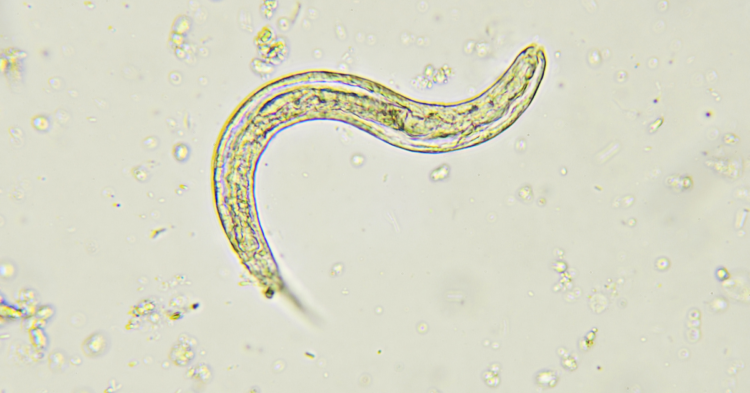Roundworm—Strongyloides (also called Threadworms) cause Strongyloidiasis. These roundworms are passed through fecal contaminated soil and water. Larvae in the soil penetrate the skin. Here is a picture of a Strongyloides worm in a fecal floatation.
Common animals that act as host to this species include humans, dogs, foxes, cats, primates, rodents, horses and raccoons. A fecal sample is necessary to identify the eggs. Symptoms are not that evident, but can include itching at the point of entry, coughing, nausea and vomiting, abdominal pain, straining to defecate and weight loss. This is a common cause of colic in horses and one main reason why horse owners should worm their horses as least every quarter (rotating the types of wormers so the parasites don’t get resistant to the same wormer given time and time again.) Feeding in feeders or where the hay does not contact the soil is also important. Treatment is with thiabendazole or mebendazole.
Reference:
- Scotch Tape Test: https://en.wikipedia.org/wiki/%22scotch-tape%22_test
- How to do your own fecal tests: www.fiascofarm.com/goats/fecals.htm

